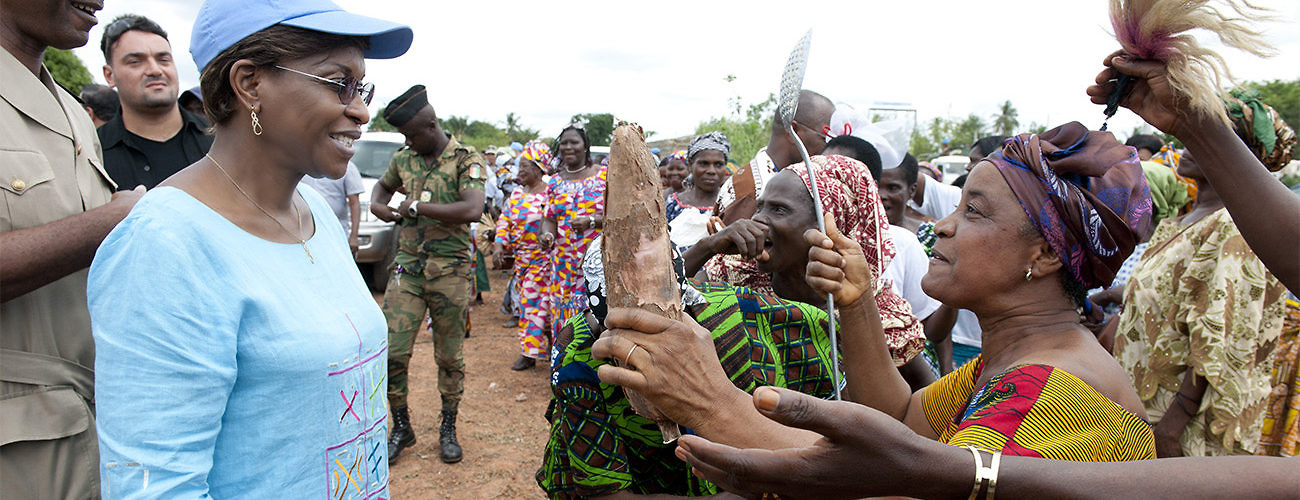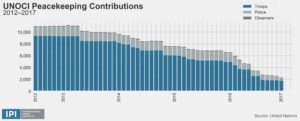Operation in Côte d’Ivoire (UNOCI), attends the inauguration ceremony of the Centre for Listening to Women in Duékoué, Cote d'Ivoire. May 22, 2015. (UN Photo/Abdul Fatai Adegboye)
In April 2016, after four years of progressive downsizing, the Security Council decided to close the UN Operation in Côte d’Ivoire (UNOCI) within a year. This decision reflected a consensus that it was time for UNOCI to leave and hand over to the UN country team with no follow-on mission. However, the transition was abrupt, without sustained dialogue, capacity transfer, or financial fluidity, leaving the UN country team unprepared to take on the mission’s responsibilities.
This policy paper examines the political dynamics in Côte d’Ivoire and in the Security Council that led to the decision to withdraw UNOCI, as well as the stages of the withdrawal and handover. It also analyzes the gaps and shortcomings that left the country team ill-prepared to take over, highlighting two main challenges. First, the Security Council viewed the transition as a political process. Its objective of withdrawing the mission superseded all others, leading it to underestimate, if not overlook, the continued peacebuilding needs of the country. Second, the transition was accompanied by waning donor interest, undercutting programming by the country team in priority areas like reconciliation, security sector reform, human rights, and land tenure.









